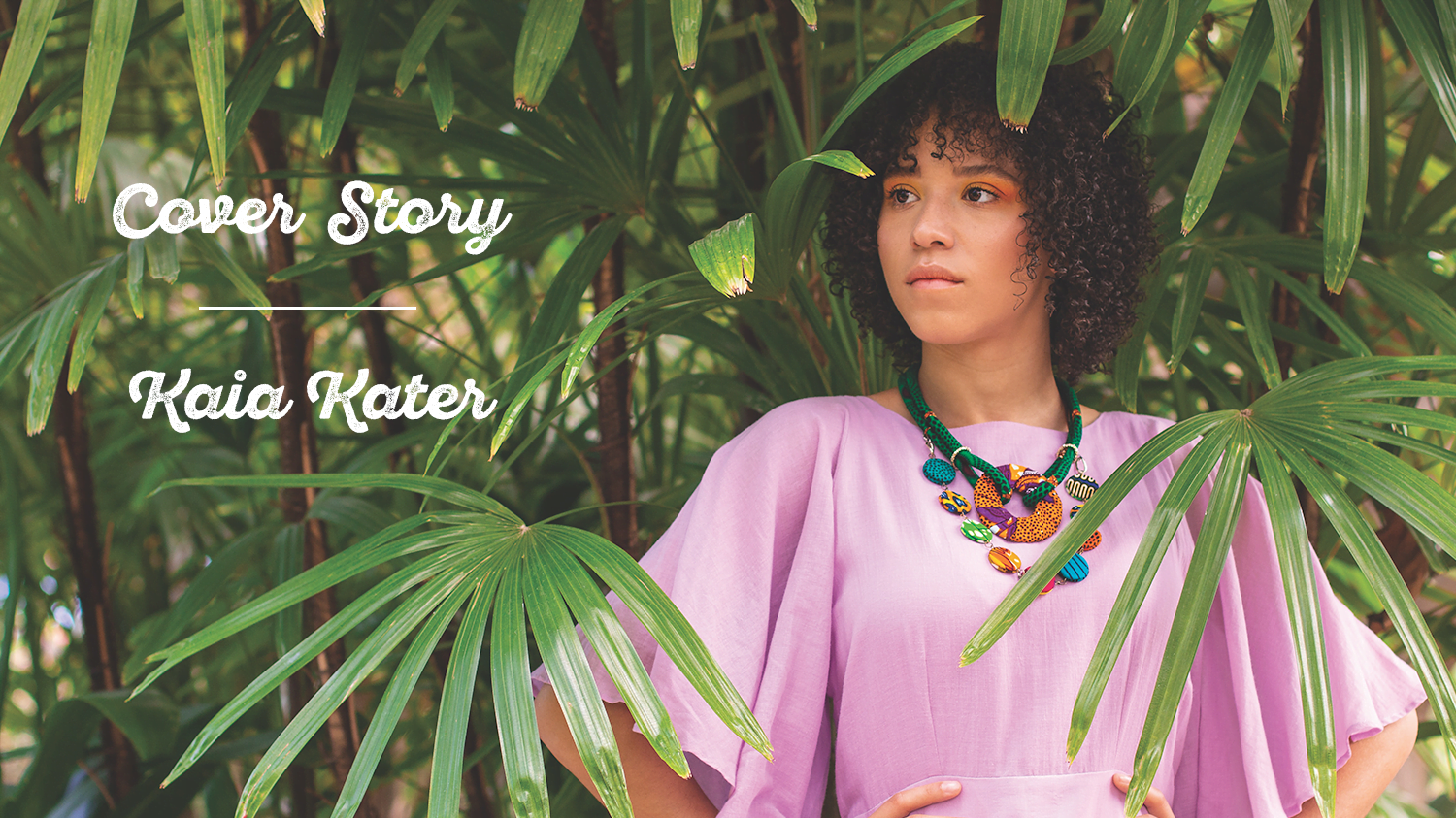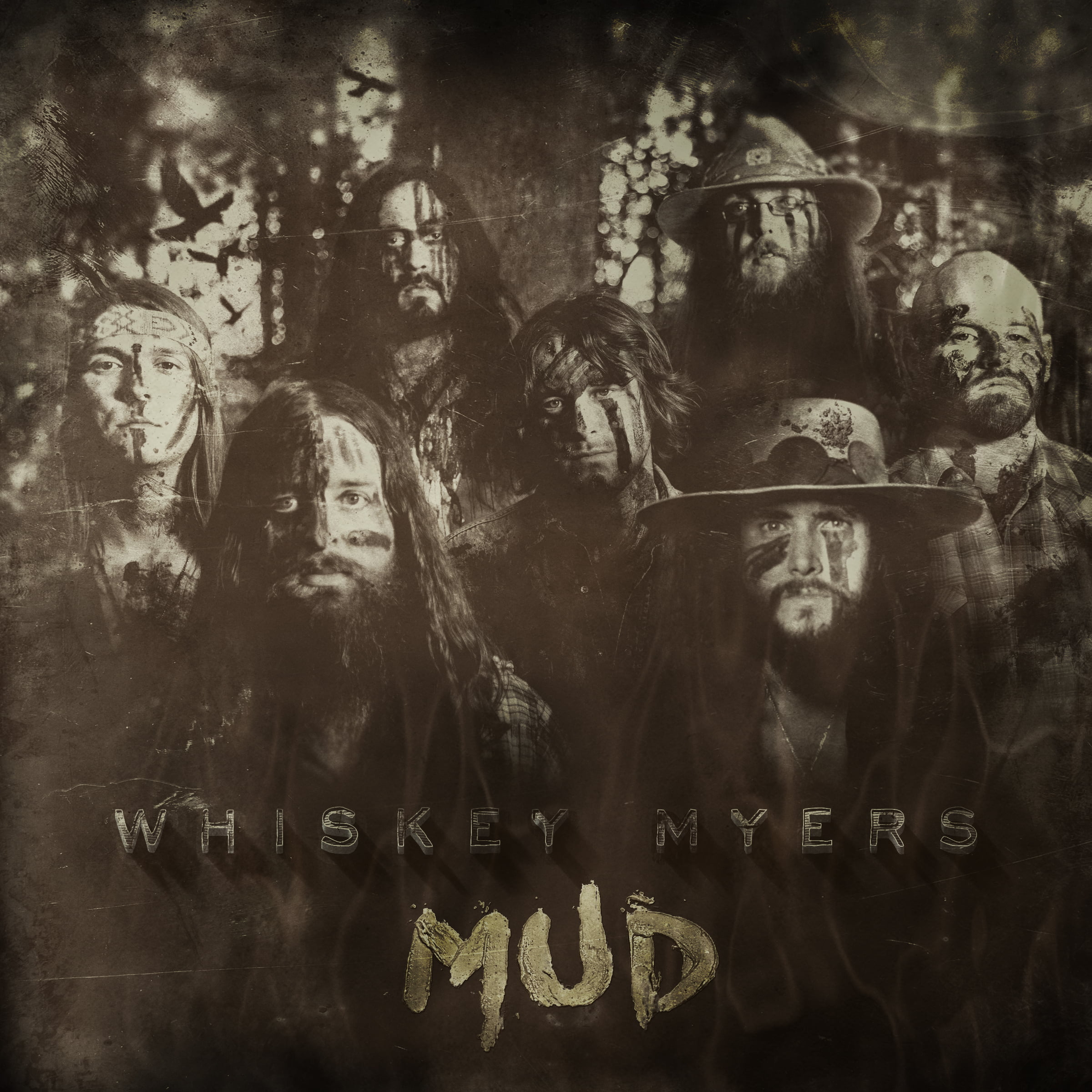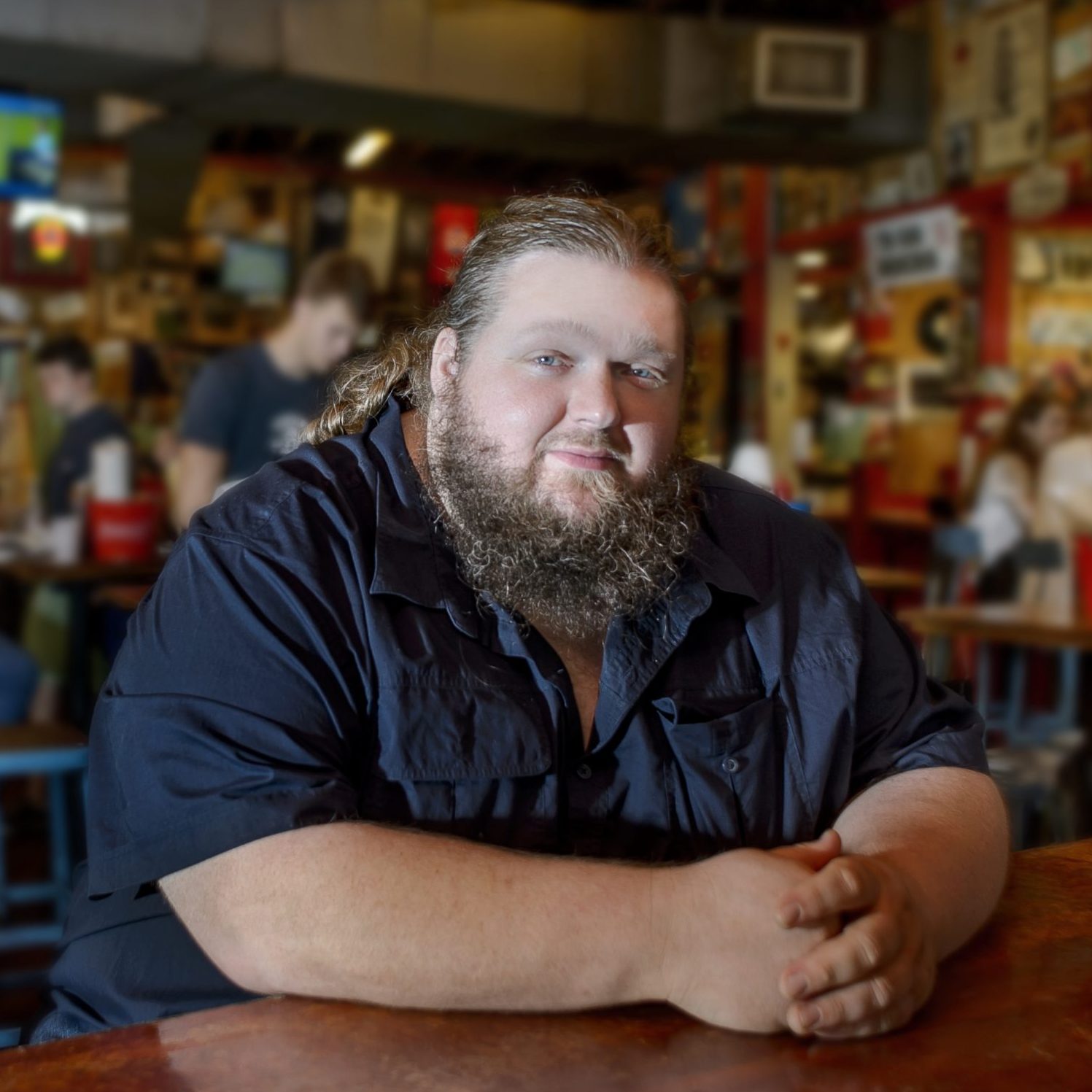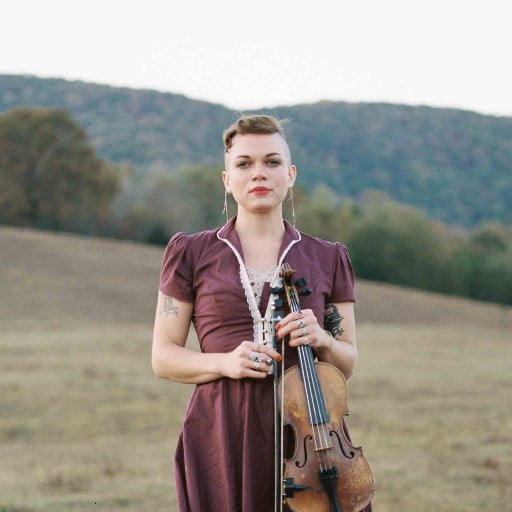Sometimes self-exploration doesn’t yield the answers we seek. For those patient enough to keep prodding, the real truths emerge in the process, rather than the culmination of examining who we are. Kaia Kater learned as much on her third album, Grenades, which stretches across generations, hemispheres, and textures, and left the singer-songwriter “swimming in her own shadow.”
Born in Canada, Kater grew up hearing about her father’s life in Grenada before he fled at age 14 when the United States invaded the small island country in 1983. As a result, a part of her always existed in a land that lay far away. With the banjo as her guiding force on Grenades, Kater strings a tightrope between her Canadian sense of self and her Grenadian heritage, in order to find a balance between those two poles.
Why did it feel like the right time not only to turn inwards, but to seek a connection back through the generations?
I think it was a multitude of things. I’d been two years out of school, and I found I had more time and space. I’d also had more conversations with my dad, and at a certain point he was like, “You’ve got to go back. You can’t keep putting it off. You’ve got to do it.” I came to agree with him. What started this whole thing is last Christmas I interviewed him in the basement of his house about growing up in Grenada and coming to Canada as a refugee.
And at the age of 14.
I know! It’s kind of crazy. I was 24 at the time I was interviewing him, so just to think about where I was at 14 — it’s kind of terrifying to think about becoming an adult that quickly. It’s kind of unbelievable. But he didn’t really talk about it a lot. I think that’s the thing, people do extraordinary things in order to lead very normal lives.
That’s a beautiful way to put it.
Yes, it’s the story of immigration and the story of refugees. I don’t think my dad ever hid his story, but I don’t think he ever thought it was an extraordinary story. He thought it was his path on the way to doing what he wants to.
It’s fantastic, then, that in addition to fitting your own voice into this musical genealogy you were able to include his voice three times on this album.
Those were from those interviews at Christmas. So much of the music and the emotion was born from that conversation that it felt like an imperative for me to include them. They were not only contextualizing the music, but they were also serving as these light posts for a pretty complicated storyline.
You’ve described Grenades as a lifeline to the South, and yet you grew up in the North. North and South have long existed as such stark dichotomies. Do you think, speaking about your identity, reconciliation is possible, or have you come to accept that there will always be a tension?
I do think it’s like being a hyphenated Canadian. I think there’s a certain cognitive dissonance that happens. This album is really great because it’s given me the space and the time to start to talk to more first and second generation Canadians about “What does being Canadian mean?” In comparison to Grenada, which is 95 percent black, Canada is a multi-ethnic place. It is richer for that. We acknowledge the richness that comes with diversity, but I think it also creates these problems of identity.
I have a friend whose parents are Ghanaian. She’s black and she grew up going to a Ghanaian church in Toronto, and then she went back to Ghana after she got her journalism degree. She was faced with this thing of like, “I have Ghanaian roots, but there’s a part of me that…my accent and the words I use are very Canadian.” I feel a little bit all over the place. Even the nature of exploring all these things is how I feel about it, which is like, I haven’t particularly arrived to a conclusion.
Nor should you. That’s the beauty of any creative form—it allows you to keep exploring. Turning to the album itself, you said you wrote the songs across winter and summer?
I started writing this album really in earnest after I’d had that conversation with my dad at Christmas. Then I went to Grenada in April, and obviously it’s very warm and it’s very beautiful, so it did feel, more than the natural course of the seasons in Canada, like I went suddenly from winter — this gray March — to summer. That’s why I feel it as this change between seasons, but also like we’ve been talking about, it’s a change in hemisphere too.
When it came time to stitch those halves together, what was the process like?
I challenged myself to write all original music on this album. I knew that in order to do that, I would have to push myself and get really analytical with my work. Just changing my environment and going to Grenada was a great help because it brought out different words and melodies and expressions. If all the songs were color-coded in my head, and one is blue for winter and yellow for summer, I can see them that way.
Of the arrangements on the entire album the three that most stand out are “Canyonland,” “The Right One,” and “Poets Be Buried.” Speaking of the latter, the beautiful slow-burn brass is exquisite. How did that unfold?
At this point, I should really credit my wonderful producer, Erin Costello. She is an artist herself; she’s actually releasing a record right around the same time as me. Keyboard is her main instrument, so she works mainly in R&B and soul, but she dabbled a lot in electronic music, and has a Master’s in composition. I feel like her musical tastes are really broad, and she really doesn’t shy away from a challenge, which is why I enjoyed working with her. And it’s also nice to be working with a woman.
I was going to say!
So many of them are men, so it’s nice to have a change of energy. She lives in Halifax. We recorded the album in Toronto, and the next day we flew to Halifax with the hard drive and mixed it there. I’d expressed that “Poets Be Buried” needed something more, and so the brass was actually the last musical piece that we added to the entire album before we mixed it. It was amazing. She had these players come in for an afternoon, and she wrote up the parts in 15 minutes. It sounded beautiful. It’s just French horn and trombone.
If you had to define the banjo’s power as an instrument and storyteller, what would it be?
The banjo has a very ancient quality, and I think especially when it’s played percussively like the clawhammer style, it can bring you into this trancelike, dreamlike state. I’ve found that with traditional music a lot, especially in a jam situation. It’s everybody playing the melody and chording all of the time — it’s not solo-based. When you’re in a jam, you get this trancelike quality where you’re playing this A/B pattern 50 or 60 times. I think the banjo lends itself well to this trance of storytelling. It brings me this inner peace that’s pretty indescribable. I think that’s why I was so attracted to it and why I’ve written on it for so many years.
I read that you play two or three banjos, but your grandpa made one for you?
Yeah, I’m looking at it now on my wall.
If we’re talking about generations, and how your new album encompasses all these different stories, that connection to your grandfather brings it to a whole other visceral level.
I hadn’t thought about that; that is a good point. It’s funny, at the risk of sounding too cheesy, it’s been a guiding light in my life. It’s opened the doors to so many things — not only studying in Appalachia, but also writing things that I may have been too scared to say openly. It’s a really beautiful instrument and a powerful one.
In the liner notes, you remark, “Here’s to swimming in your own shadow.” In dealing with your father’s voice and other generations, how did you create the space for your voice in the midst of intertwining these other narratives?
I think I still am. In the same way when we were talking about northern and southern hemispheres, I think that’s an ever-evolving question for me. For a long time, I’ve had an existential anxiety about having two sides to my family who both have very strong people and very strong narratives, and thinking, “Where do I fit in this picture?” That’s why I create albums, so I can give myself the time and space to explore that.
I’ve put Grenades out, and now I’m going to get to know what it’s about. The “swimming in your own shadow” thing is about getting comfortable essentially with being uncomfortable, and with having a lot of conflicting narratives, and trauma that comes from war or from being biracial, or from being a woman in the world, which people are really starting to talk about. It’s my own way of dealing with that. The album is me carving out that space for myself.
Photo credit: Raez Argulla



